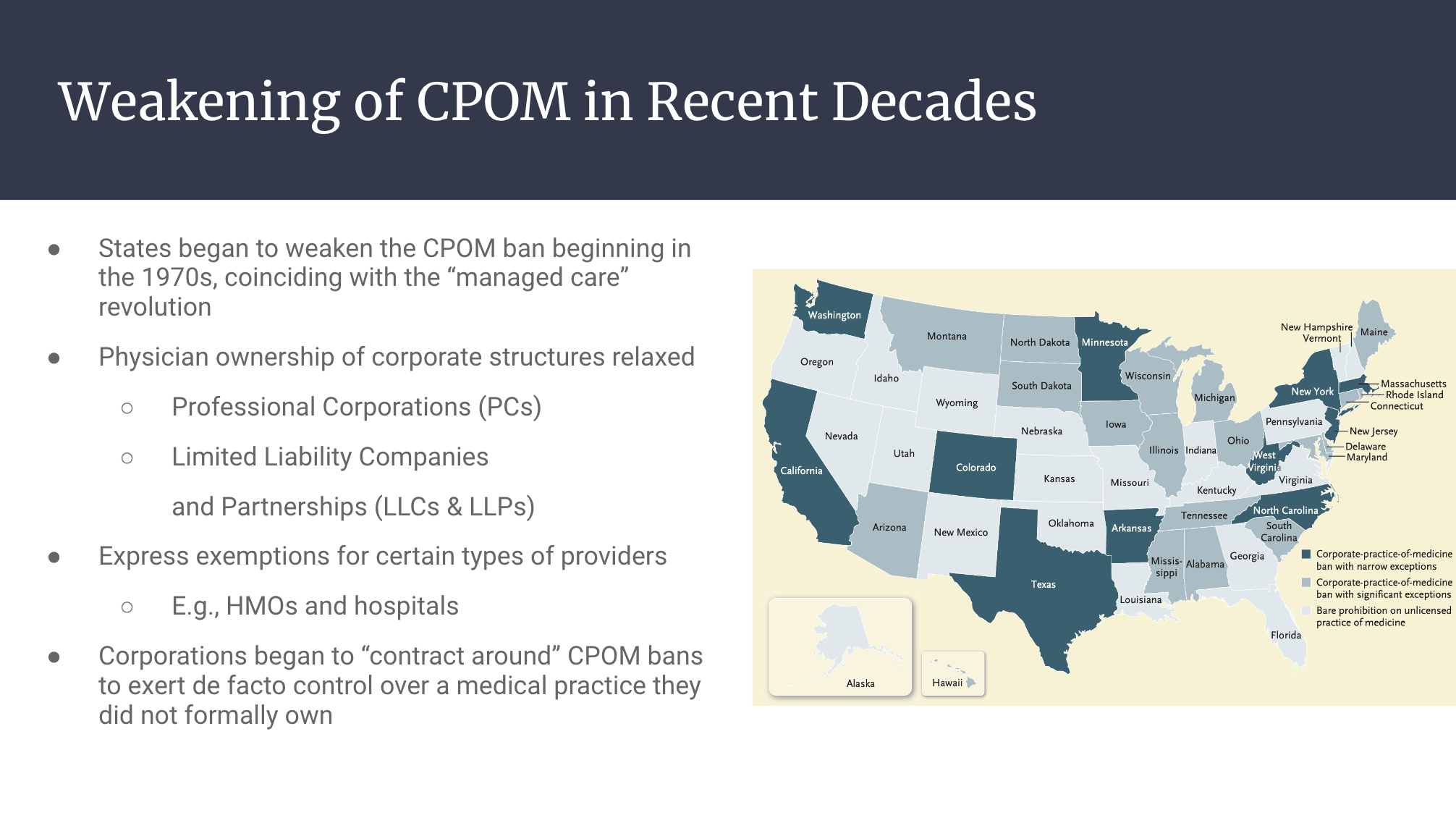What is the Corporate Practice Of Medicine?
A frightening new concept in health ownership/medical practice
Although there are state-level variations as to its scope and breadth, in its most basic form, Corporate Practice of Medicine (CPOM) prohibits or otherwise restricts the ownership of medical or medical-adjacent practices or businesses by non-licensed medical professionals.
Corporate ownership and investment in health care is accelerating at an alarming rate, with retailers, insurance companies, and private equity investors flooding into a variety of health care specialties. The largest employer of physicians in the U.S. today is an insurance company, UnitedHealth. And the pattern is showing up in Oregon, as companies like Amazon, Walgreens, and UnitedHealth increasingly own medical providers in the state. This was one topic of the Senate Interim Committee on Health Care hearing last Wednesday, which convened a panel of experts to discuss corporatization and what can be done about it.
Testifying on the panel, HCAO board member Hayden Rooke-Ley discussed the prohibition on the Corporate Practice of Medicine–a potential solution that he and colleagues recently wrote about in the New England Journal of Medicine. In short, the CPOM ban has long prohibited corporations from engaging in the practice of medicine, but with the rise of managed care in the 1980’s, these laws have been significantly eroded–including here in Oregon. However, as the system becomes increasingly dominated by corporate actors, there is renewed interest in strengthening CPOM bans. Look out for potential legislation on this front in Oregon!

